Salesforce.com 2010 Annual Report Download - page 39
Download and view the complete annual report
Please find page 39 of the 2010 Salesforce.com annual report below. You can navigate through the pages in the report by either clicking on the pages listed below, or by using the keyword search tool below to find specific information within the annual report.-
 1
1 -
 2
2 -
 3
3 -
 4
4 -
 5
5 -
 6
6 -
 7
7 -
 8
8 -
 9
9 -
 10
10 -
 11
11 -
 12
12 -
 13
13 -
 14
14 -
 15
15 -
 16
16 -
 17
17 -
 18
18 -
 19
19 -
 20
20 -
 21
21 -
 22
22 -
 23
23 -
 24
24 -
 25
25 -
 26
26 -
 27
27 -
 28
28 -
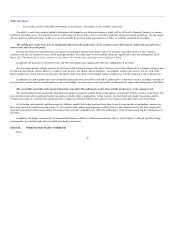 29
29 -
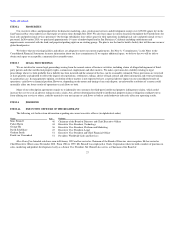 30
30 -
 31
31 -
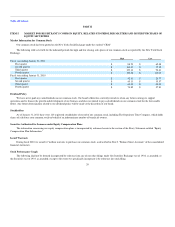 32
32 -
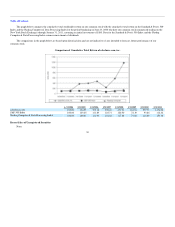 33
33 -
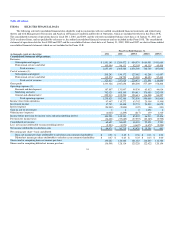 34
34 -
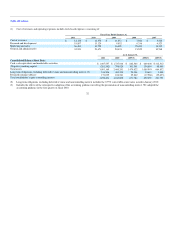 35
35 -
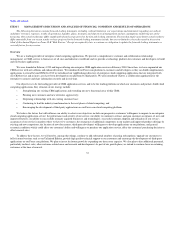 36
36 -
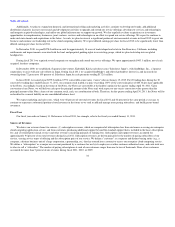 37
37 -
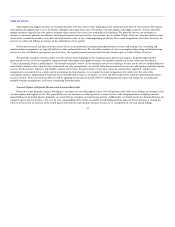 38
38 -
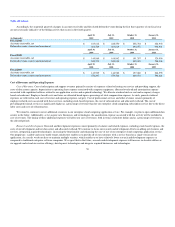 39
39 -
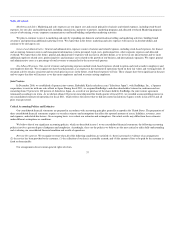 40
40 -
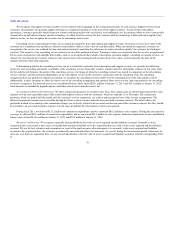 41
41 -
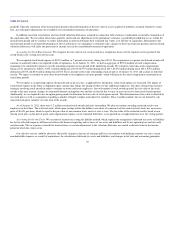 42
42 -
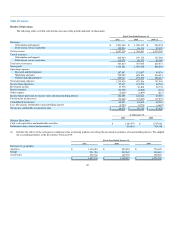 43
43 -
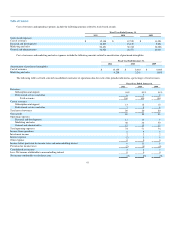 44
44 -
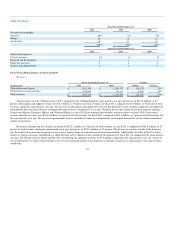 45
45 -
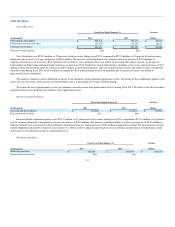 46
46 -
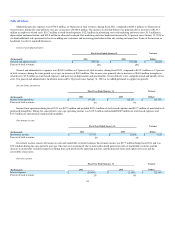 47
47 -
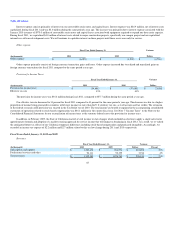 48
48 -
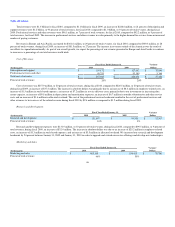 49
49 -
 50
50 -
 51
51 -
 52
52 -
 53
53 -
 54
54 -
 55
55 -
 56
56 -
 57
57 -
 58
58 -
 59
59 -
 60
60 -
 61
61 -
 62
62 -
 63
63 -
 64
64 -
 65
65 -
 66
66 -
 67
67 -
 68
68 -
 69
69 -
 70
70 -
 71
71 -
 72
72 -
 73
73 -
 74
74 -
 75
75 -
 76
76 -
 77
77 -
 78
78 -
 79
79 -
 80
80 -
 81
81 -
 82
82 -
 83
83 -
 84
84 -
 85
85 -
 86
86 -
 87
87 -
 88
88 -
 89
89 -
 90
90 -
 91
91 -
 92
92 -
 93
93 -
 94
94 -
 95
95 -
 96
96 -
 97
97 -
 98
98 -
 99
99 -
 100
100 -
 101
101 -
 102
102 -
 103
103 -
 104
104 -
 105
105 -
 106
106 -
 107
107 -
 108
108 -
 109
109 -
 110
110 -
 111
111 -
 112
112 -
 113
113 -
 114
114 -
 115
115 -
 116
116 -
 117
117 -
 118
118 -
 119
119 -
 120
120 -
 121
121 -
 122
122 -
 123
123 -
 124
124 -
 125
125 -
 126
126 -
 127
127 -
 128
128 -
 129
129 -
 130
130 -
 131
131 -
 132
132 -
 133
133 -
 134
134 -
 135
135 -
 136
136 -
 137
137 -
 138
138 -
 139
139 -
 140
140 -
 141
141 -
 142
142 -
 143
143 -
 144
144 -
 145
145 -
 146
146 -
 147
147 -
 148
148 -
 149
149 -
 150
150 -
 151
151 -
 152
152 -
 153
153 -
 154
154 -
 155
155 -
 156
156 -
 157
157 -
 158
158 -
 159
159 -
 160
160 -
 161
161 -
 162
162 -
 163
163 -
 164
164 -
 165
165 -
 166
166 -
 167
167 -
 168
168 -
 169
169 -
 170
170 -
 171
171 -
 172
172 -
 173
173 -
 174
174 -
 175
175 -
 176
176 -
 177
177 -
 178
178 -
 179
179 -
 180
180 -
 181
181 -
 182
182 -
 183
183 -
 184
184 -
 185
185 -
 186
186 -
 187
187 -
 188
188 -
 189
189 -
 190
190 -
 191
191 -
 192
192 -
 193
193 -
 194
194 -
 195
195 -
 196
196 -
 197
197 -
 198
198 -
 199
199 -
 200
200 -
 201
201 -
 202
202 -
 203
203 -
 204
204 -
 205
205 -
 206
206 -
 207
207 -
 208
208 -
 209
209 -
 210
210 -
 211
211 -
 212
212 -
 213
213 -
 214
214 -
 215
215 -
 216
216 -
 217
217 -
 218
218 -
 219
219 -
 220
220 -
 221
221 -
 222
222 -
 223
223 -
 224
224 -
 225
225 -
 226
226 -
 227
227 -
 228
228 -
 229
229 -
 230
230 -
 231
231 -
 232
232 -
 233
233 -
 234
234 -
 235
235 -
 236
236 -
 237
237 -
 238
238 -
 239
239 -
 240
240 -
 241
241 -
 242
242 -
 243
243 -
 244
244 -
 245
245 -
 246
246 -
 247
247 -
 248
248 -
 249
249 -
 250
250 -
 251
251 -
 252
252 -
 253
253 -
 254
254 -
 255
255 -
 256
256 -
 257
257 -
 258
258 -
 259
259 -
 260
260 -
 261
261 -
 262
262 -
 263
263 -
 264
264 -
 265
265 -
 266
266 -
 267
267 -
 268
268 -
 269
269 -
 270
270 -
 271
271 -
 272
272 -
 273
273 -
 274
274 -
 275
275 -
 276
276 -
 277
277 -
 278
278 -
 279
279 -
 280
280 -
 281
281 -
 282
282 -
 283
283 -
 284
284 -
 285
285 -
 286
286 -
 287
287 -
 288
288 -
 289
289 -
 290
290 -
 291
291 -
 292
292 -
 293
293 -
 294
294 -
 295
295 -
 296
296 -
 297
297 -
 298
298 -
 299
299 -
 300
300 -
 301
301 -
 302
302 -
 303
303 -
 304
304 -
 305
305 -
 306
306 -
 307
307 -
 308
308 -
 309
309 -
 310
310 -
 311
311 -
 312
312 -
 313
313 -
 314
314 -
 315
315 -
 316
316 -
 317
317 -
 318
318 -
 319
319 -
 320
320 -
 321
321 -
 322
322 -
 323
323 -
 324
324 -
 325
325 -
 326
326
 |
 |

Table of Contents
Accordingly, the sequential quarterly changes in accounts receivable and the related deferred revenue during the first three quarters of our fiscal year
are not necessarily indicative of the billing activity that occurs in the fourth quarter.
(in thousands)
April 30,
2010
July 31,
2010
October 31,
2010
January 31,
2011
Fiscal 2011
Accounts receivable, net $ 183,612 $ 228,550 $ 258,764 $ 426,943
Deferred revenue, current and noncurrent 664,529 683,019 694,557 934,941
April 30,
2009
July 31,
2009
October 31,
2009
January 31,
2010
Fiscal 2010
Accounts receivable, net $ 145,869 $ 168,842 $ 191,297 $ 320,956
Deferred revenue, current and noncurrent 549,373 549,010 545,435 704,348
April 30,
2008
July 31,
2008
October 31,
2008
January 31,
2009
Fiscal 2009
Accounts receivable, net $ 143,909 $ 146,982 $ 157,680 $ 266,555
Deferred revenue, current and noncurrent 470,297 479,546 469,534 594,026
Cost of Revenues and Operating Expenses
Cost of Revenues. Cost of subscription and support revenues primarily consists of expenses related to hosting our service and providing support, the
costs of data center capacity, depreciation or operating lease expense associated with computer equipment, allocated overhead and amortization expense
associated with capitalized software related to our application service and acquired technology. We allocate overhead such as rent and occupancy charges
based on headcount. Employee benefit costs and taxes are allocated based upon a percentage of total compensation expense. As such, general overhead
expenses are reflected in each cost of revenue and operating expense category. Cost of professional services and other revenues consists primarily of
employee-related costs associated with these services, including stock-based expenses, the cost of subcontractors and allocated overhead. The cost of
providing professional services is significantly higher as a percentage of revenue than for our enterprise cloud computing subscription service due to the direct
labor costs and costs of subcontractors.
We intend to continue to invest additional resources in our enterprise cloud computing application service. For example, we plan to open additional data
centers in the future. Additionally, as we acquire new businesses and technologies, the amortization expense associated with this activity will be included in
cost of revenues. The timing of these additional expenses will affect our cost of revenues, both in terms of absolute dollars and as a percentage of revenues, in
the affected periods.
Research and Development. Research and development expenses consist primarily of salaries and related expenses, including stock-based expenses, the
costs of our development and test data center and allocated overhead. We continue to focus our research and development efforts on adding new features and
services, integrating acquired technologies, increasing the functionality and enhancing the ease of use of our enterprise cloud computing application service.
Our proprietary, scalable and secure multi-tenant architecture enables us to provide all of our customers with a service based on a single version of our
application. As a result, we do not have to maintain multiple versions, which enables us to have relatively lower research and development expenses as
compared to traditional enterprise software companies. We expect that in the future, research and development expenses will increase in absolute dollars as
we upgrade and extend our service offerings, develop new technologies and integrate acquired businesses and technologies.
36
